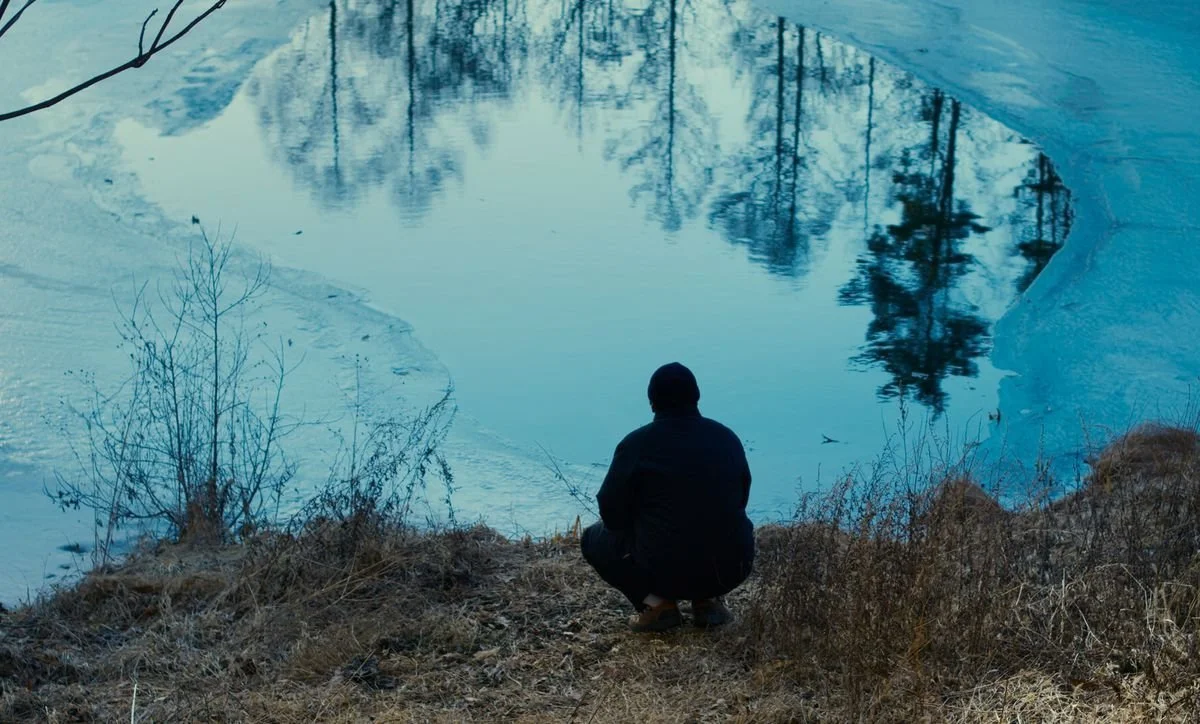Mountain Water: Notes on Hamaguchi's Evil Does Not Exist
The mountain water in Hamaguchi's 'Evil Does Not Exist' moves like time itself - steady, relentless, deceptively gentle. In the Japanese village of Mizubiki, where crystal streams carve ancient paths through forest floor, a single father named Takumi harvests wood with the same deliberate rhythm as the water's flow. This is where our story begins, though like the stream itself, its true source lies somewhere higher up the mountain, in the collision between urban ambition and rural permanence.
Hamaguchi understands the weight of time. Each frame lingers exactly as long as it must - no more, no less. Like a master woodworker, he strips away everything unnecessary, leaving only essential grain. The dialogue follows this same economy, words measured out like precious water. In one scene, a talent agency representative speaks candidly during a car ride, and I'm struck by how the confined space of an automobile has always served as humanity's confessional booth. The long drive, the landscape sliding past, creates a space where truth emerges at its own pace.
Though set in a mountain town in Japan, the film resonates with a universal frequency. I recognize these people, these pressures, these small negotiations between progress and preservation. I've seen similar faces in the mountain communities of Vermont, Colorado, Montana - anywhere where the rhythm of modern life runs up against older, deeper patterns. Takumi's quiet authority comes not from any performed expertise but from his harmony with the forest's own logic. He is fluent in the language of patient cultivation.
Yet Hamaguchi refuses to paint rural life in purely romantic tones. We see Takumi at his daughter's school, arriving late for pickup. His sobriety and wisdom in the forest don't translate to perfect fatherhood. These moments of human imperfection arrive like small stones in a clear stream, creating ripples that spread outward. When a Tokyo glamping company representative arrives, axe in hand, eager to experience authentic rural life, we recognize a familiar modern yearning - the desire to touch something real, even if we risk disturbing its delicate balance.
The film's conclusion feels as inevitable as spring runoff, carrying with it all that has accumulated upstream. The price of progress always flows downhill, and like water, it finds every gap in our careful defenses. Yet Hamaguchi's genius lies in showing us how this story, while universal, remains stubbornly specific. Every dropped acorn, every split log, every shared meal carries both the weight of tradition and the uncertainty of change.
In watching 'Evil Does Not Exist,' I'm reminded that the best stories, like the clearest mountain streams, reflect both sky and stone - the aspirations above and the hard reality below. As someone dedicated to visual storytelling, I find myself returning to Hamaguchi's patient confidence, his trust that truth, given time and space, will carve its own path.
